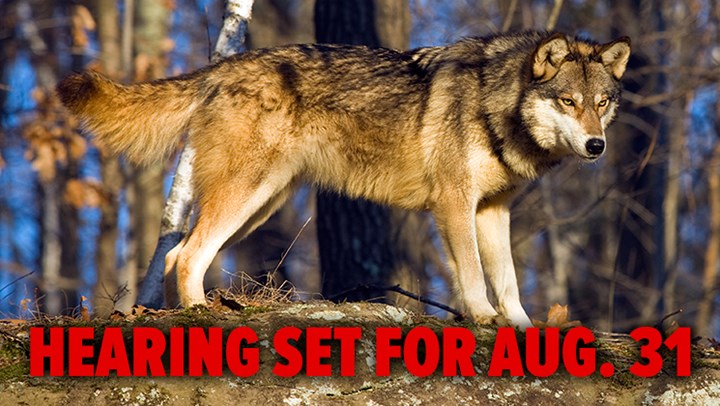
by Phil Phillips - Thursday, August 23, 2018

Anti-hunters act fast. Yesterday morning Washington state’s Department of Fish and Wildlife (WDFW) announced plans to kill wolves that have been eating a rancher’s cattle in the northeastern part of the state near Canada. Before the ink on the agency’s news release was dry, animal rights extremist groups already had issued a challenge to stop the process. The Center for Biological Diversity and Cascadia Wildlands immediately sued, contending that the order to kill wolves failed to undergo an environmental analysis. Within hours, a Thurston County Superior Court judge in Olympia, Wash., filed an emergency order temporarily blocking the WDFW from shooting members of the wolf pack.
As reported by The Associated Press and numerous other media sources, members of a local wolf pack known as the Togo pack have attacked area cattle three times over the past month and six times since November 2017. The WDFW said this amount of preying exceeds the state’s threshold for taking action, which is why it planned to shoot the wolves using a policy of incremental removal, killing only one or a few wolves at a time.
You would think the state game agency would have the final decision as its biologists are the experts on all things wildlife—including wildlife management. The WDFW said the rancher whose cattle continue to be preyed upon tried to deter the wolves multiple times with non-lethal means, including using lights and range riders, so the agency’s plan was to shoot the wolves from helicopters or on the ground.
In a WDFW news release, WDFW Director Kelly Susewind said, "The evidence shows that non-lethal measures have not been successful, and the pack will continue preying on livestock unless we take action to change its behavior."
A hearing to resolve the issue is set for Fri., Aug. 31.
Background on Washington Wolves
After disappearing a century ago, wolves began returning to Washington from Canada and Idaho over the past two decades. The WDFW has killed 18 of them since 2012. Wolves remain federally protected in the western two-thirds of the state and protected by law statewide. As of last winter when wolves were counted statewide, there were a minimum of 122 wolves in 22 packs, including 14 successful breeding pairs. Most packs are in northeastern Washington, where there have been numerous conflicts with cattle producers. The existence of the Togo pack, found near the U.S.-Canada border, was confirmed in late 2017.
■ ■ ■
About the Author: NRA Life member, award-winning outdoor TV host and recreational real estate associate broker Phil Phillips has hunted five continents, taking more than 200 big-game animals and nearly 60 species worldwide. Prior to hosting hunting programs, he started Colorado's first Ranching for Wildlife Program for antelope, which he ran for 15 years. Working alongside professional land managers to restore and protect habitat, Phil went on to guide clients to 500-plus big-game animals that have qualified for the record book. In 1992 Safari Club International honored him as the North American Bowhunting Outfitter of the Year.
E-mail your comments/questions about this site to:
[email protected]
Proudly supported by The NRA Foundation and Friends of NRA fundraising.
